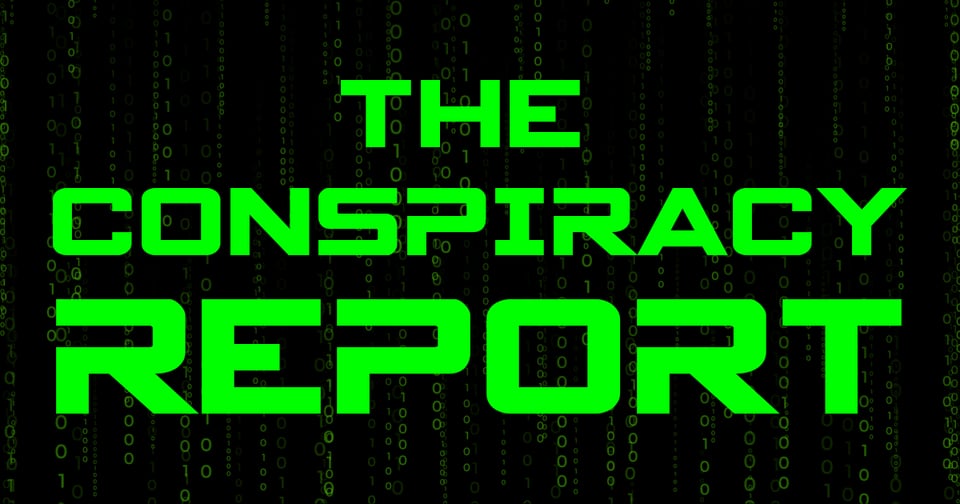Jan. 2, 2025, 11:08 p.m.
Pain Killer: The Settlement of DOJ With McKinsey and Purdue Pharma
Big pharma not only promoted and profited from the sale of drugs that promised just that — freedom from pain... at least one of those pain relievers was killing children who ignorantly abused it.

The Conspiracy Report

Gordon Gekko, the fictional corporate raider, told us in the movie Wall Street, that ‘Greed is good.’ (Corporations were listening and became dedicated practitioners of the creed.)
The classical Greek philosopher Epicurus told us to seek aponia, or freedom from pain.
Big pharma not only greedily agreed with him, but promoted and profited from the sale of drugs that promised just that — freedom from pain. While at the same time, at least one of those pain relievers was killing children who ignorantly abused it.
Among those pain killing drugs that were sold to the public, (by doctor’s prescription of course), was Oxycontin the trade name for pills containing the narcotic oxycodone hydrochloride.
The pills were designed to be swallowed whole. But when crushed and turned to a powder and ingested, it brought on a euphoric state. That of course, led to abuse of the prescription drug by those in search of a chemical good time.
It was popular among high school children. It has been estimated that four percent of them have abused the drug at least once. Many of them without benefit of a prescription. Some of those, who ‘knew not what they did,’ took too much of the drug and wound up being cured of their dependency on it — permanently.[1]
Promoting Increased Sales of Deadly Drug
Purdue Pharma LP, the manufacturer and legal distributor of the drug, in order to boost sales, initiated an active marketing campaign. It sought to ‘encourage’ primary care physicians, among others to prescribe oxycontin as an initial pain killer.
From 2004–2019 McKinsey & Co. Inc. a management consulting firm, advised Purdue on how to better market oxycontin, among other services McKinsey performed.
McKinsey counseled Purdue as to which health care providers the drug company’s sales force should concentrate on to increase sales of oxycontin. They did so with full knowledge that this drug was not only subject to widespread abuse, but that abuse was growing among users without benefit of a prescription. (Some of the patients with the prescription were selling the pills to those without one.)
Additionally, sales pressure was put on providers to prescribe oxycontin for conditions in which it was not only unnecessary, but medically ineffective.
The consulting company was also aware that Purdue had been criminally sanctioned in 2007 for misbranding the drug, and engaging in deceptive marketing practices — minimizing the actual danger of the drug.
Purdue later manufactured a version of oxycontin that was more difficult to grind into a powder, and supposedly, more difficult to abuse. Eventually, pharmacies and physicians in light of the abuse of the drug, and growing regulations on its dispensation, reduced their promotion of the drug, and lost sales as a result.
McKinsey, to the rescue, implemented marketing methods to counteract lost sales. This included the potential for legal mail order distribution, ‘ride alongs’ with drug sales representatives calling on high volume prescribers of the drug, and orchestrating a sales focus on those providers who proved more amenable to the prescribing of oxycontin on a more frequent basis.[2]
Profiting from Addiction
It was obvious that profits were top of mind in the joint efforts of McKinsey and Purdue to aggressively market the drug that was number one on the abuse list. The drug that was killing American teenagers who abused it.
They sought to aggressively promote oxycontin to high volume prescribing providers, and they knew exactly what the consequences could be. They weren’t concerned with patients… they were concerned with profits, and the high fees that McKinsey was earning for consulting.
As you may imagine, eventually, the government got involved in an attempt to resolve the opioid crisis. It initiated civil and criminal investigations against both McKinsey and Purdue.
The investigations and actions pursuant to them settled last month.
From the DOJ site:
‘This global resolution shows the department’s commitment to holding accountable those who played key roles in fueling the opioid crisis,” said Principal Deputy Assistant Attorney General Brian M. Boynton, head of the Justice Department’s Civil Division. “Consulting companies cannot advise their clients to break the law, and then skirt responsibility when their clients do so.’
The site also referenced that:
‘“McKinsey’s management consulting work with Purdue Pharmaceuticals significantly contributed to a devastating public health crisis affecting American families and communities nationwide,” said Inspector General Christi A. Grimm of the Department of Health and Human Services Office of Inspector General (HHS-OIG).’
As part of the resolution of the actions, ‘McKinsey will pay $650 Million, cease work relating to controlled substances and implement significant new compliance measures,’ according to the headline on the DOJ press release. [3]
Why You Should Care
One of the powers of the Federal government is the regulation of interstate commerce. That is included in Article I, Section 8, Clause 1 of the Constitution. It empowers the government to ‘provide for the general welfare’ of the United States.
The FDA is the federal regulatory agency empowered to, among other things, regulate prescription drugs.
When these agencies do their jobs, when they investigate and prosecute those corporations that knowingly engaged in unethical behavior that can cause harm and death to our citizenry, that’s something to care about. Something to acknowledge — that yes, sometimes the government is here to help us. (As rare an event as that might be.)
No doubt that some of the readers of this article have either lost a family member to the abuse of narcotic substances, or know someone that has. The statistics are grim, and from 2011–2021 it has been estimated that 320,000 children across the United States have lost a parent due to a drug overdose.[4]
In 2023, it was estimated that there were more than 81,000 opioid overdose deaths in the United States. [5]
While many of us believe that there is too much government in our lives, that we would be better off with a great deal less of it, when it comes to reeling in the greed of large corporations, that would do almost anything to bring in profits if free of any restrictions, we are fortunate to have legal and regulatory oversight agencies protecting our safety.
As evidence of that statement, the 2023 number of opioid deaths reported above, and perhaps in a sign of progress, it was a decrease from previous years.
[1] NATIONAL DRUG INTELLIGENCE CENTER OXYCONTIN FACTS https://www.justice.gov/archive/ndic/pubs6/6025/index.htm
[2] AGREED STATEMENT OF FACTS US V. MCKINSEY https://www.justice.gov/opa/media/1380371/dl
[3] DOJ OFFICE OF PUBLIC AFFAIRS PRESS RELEASE 12/13/2024 https://www.justice.gov/opa/pr/justice-department-announces-resolution-criminal-and-civil-investigations-mckinsey-companys
[4] NPR MAY 8,2024 REPORT https://www.npr.org/sections/health-shots/2024/05/08/1249918051/drug-overdose-orphans-opioids-cdc-nida
[5] CDC PRESS RELEASE 5/15/24 https://www.cdc.gov/nchs/pressroom/nchs_press_releases/2024/20240515.htm#:~:text=The%20new%20data%20show%20overdose,psychostimulants%20(like%20methamphetamine)%20increased.